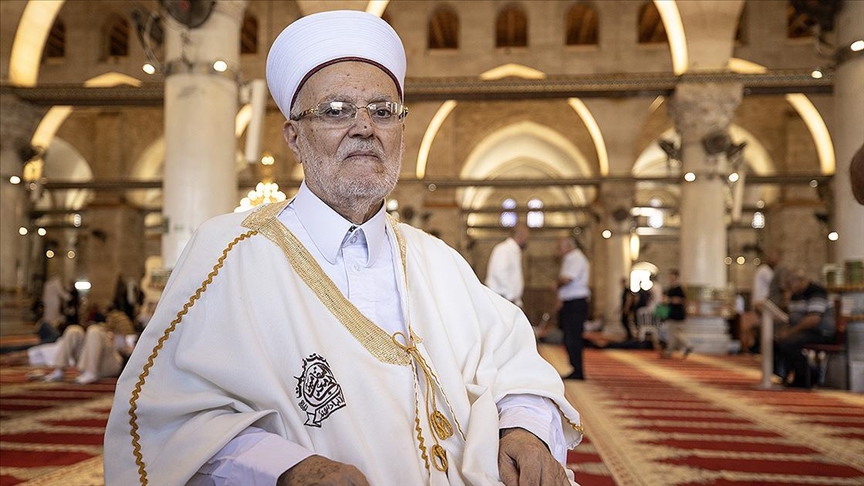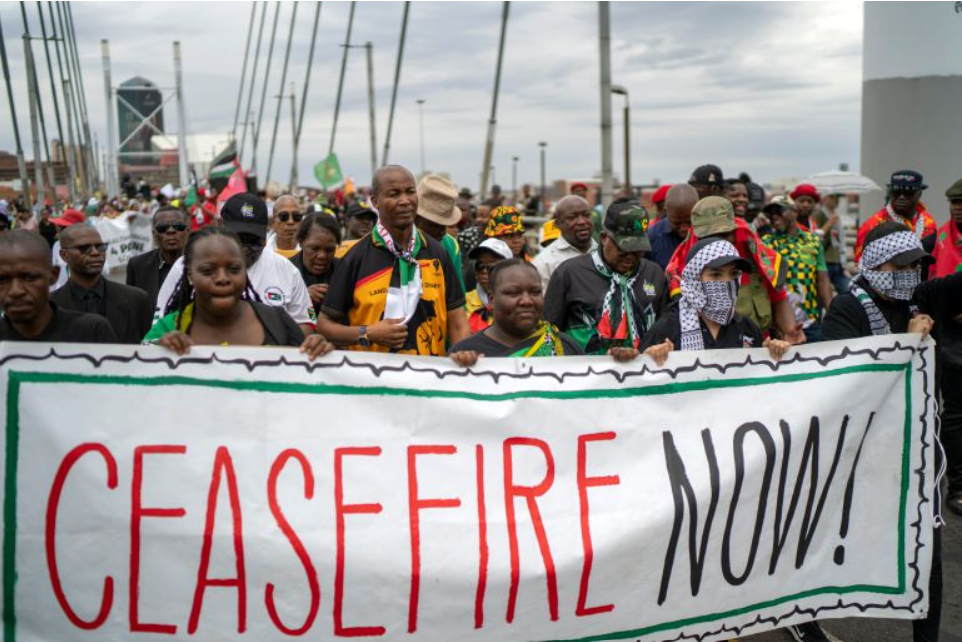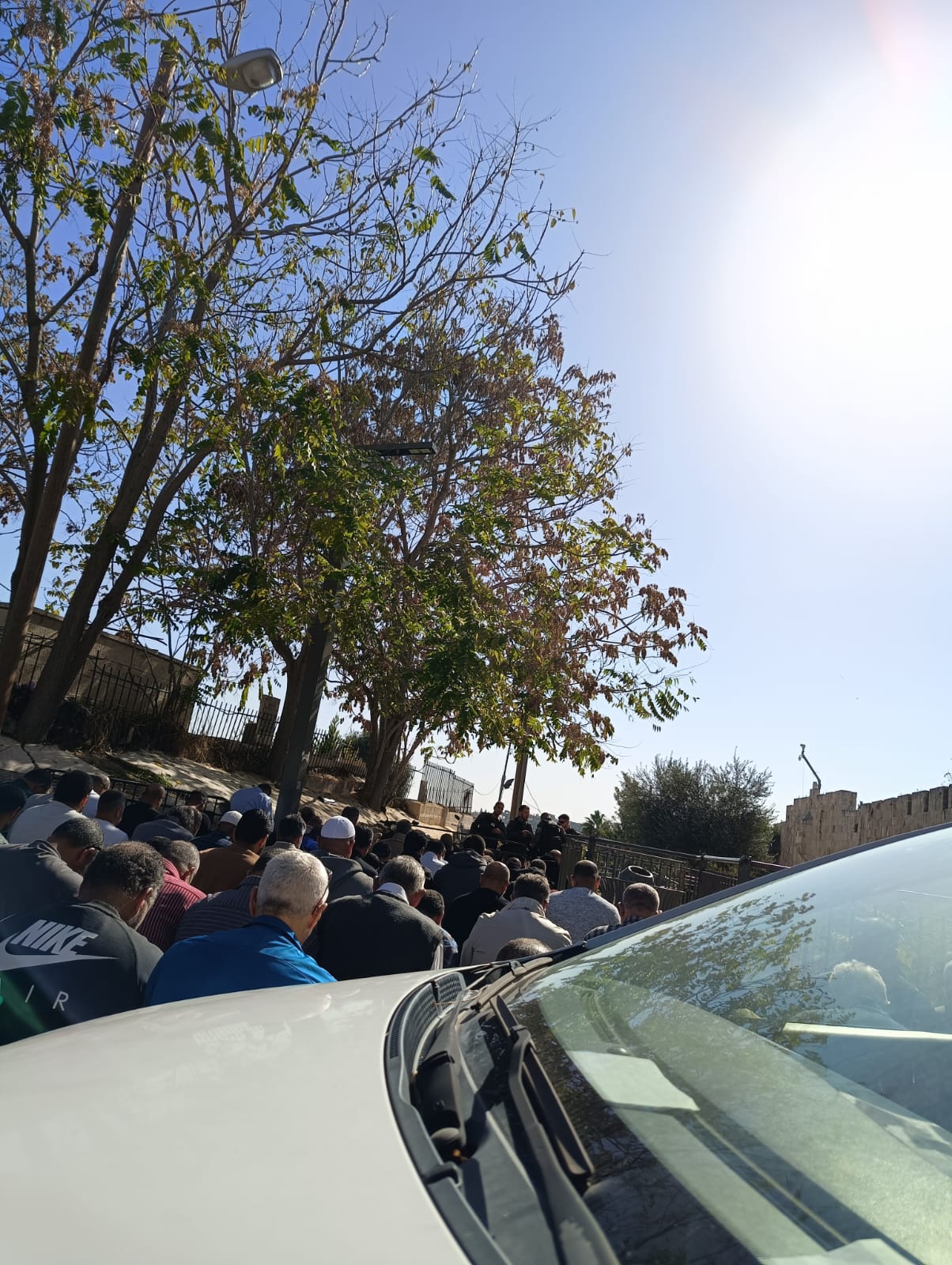-
Occupation Forces Issue Demolition order for Al-Aqsa Imam
Occupied East Jerusalem On December 3, Israeli Occupation forces converged on the Sawaneh neighborhood in occupied East Jerusalem evicting its residents and pinning intention-of-demolition orders to all families in the building albeit their target was solely the home of one of Al-Aqsa Mosque’s main Imams, Sheikh Ekrima Sabri. The order affects 18 homes, […]
-
Solidarity Worldwide: actions, protests and initiatives for Palestine around the globe
As the Israeli army continues its genocidal war on Gaza, and as the Israeli occupation forces and settler militias carry out ethnic cleansing in the West Bank and East Jerusalem, people around the world are taking to the streets, engaging in direct actions and BDS (Boycott, Divest, Sanction) and pressuring their governments to enforce an […]
-
A Prayer Against An Army
Palestinians: men, women, youth, and elders, walk miles attempting to reach Al Aqsa Mosque, trying every gate. Each path is blocked by Israeli guns and barricades.
Action Alert An Nabi Saleh Apartheid Wall Arrests BDS Bethlehem Bil'in Cast Lead Demonstration Denial of Entry Ethnic Cleansing Farmers Gaza Global Actions Hebron House Demolition International law Israeli Army Jerusalem Live Ammunition Nablus Ni'lin Prisoner Ramallah Rubber-coated steel bullets Settlement Settlers Settler violence Tear-Gas Canister Video



